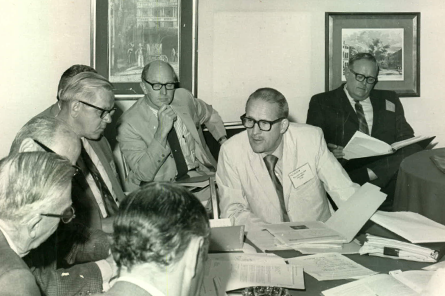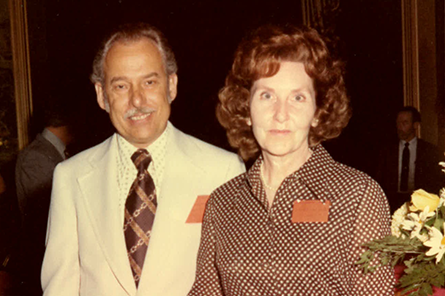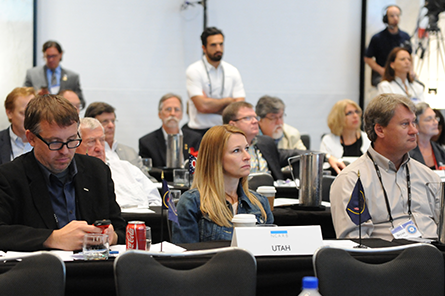Utah
Law Passed: 1911 • Joined NCARB: 1940 • Region 6—Western (1963)
The Components of Licensure
Education
1988: A degree from a NAAB-accredited program is required for initial licensure.
Early-2000s: Continuing education is required for license renewal.
Experience
1970: Board accepts eight years of experience in lieu of a professional degree.
Late-1980s: The IDP is accepted as an equivalent to the board’s experience requirement.
Examination
1954: Utah models its examination after NCARB’s syllabus.
1960s: The board begins administering NCARB’s national exams.
Noteworthy
Two of the first licensed architects in Utah, Leslie Hodgson and Taylor Woolley, trained under Frank Lloyd Wright in Chicago, Illinois. Hodgson and Woolley went on to mentor many architects in Utah until their respective retirements, spreading Wright’s influence throughout the Beehive State.
Utah’s first licensing exam referenced the construction of buildings and the strength of materials, as well as “the ability to make practical application of such knowledge in the ordinary professional work of an architect.” Several of these fundamental skills would stand the test of time, appearing on future versions of the ARE.
Notable People
NCARB Presidents
1955-56: Fred L. Markham, FAIA (Provo)
1970: Dean L. Gustavson, FAIA (Salt Lake City)
2011: Kenneth J. Naylor, FAIA (Salt Lake City)
Additional Members of the NCARB Board of Directors
1970-73: Willard C. Nelson, FAIA (Provo)
1975-78: Donald H. Panushka, FAIA (Salt Lake City)
1980-84: Burtch W. Beall Jr., FAIA (Salt Lake City)
1998-00: Dennis B. Patten (St. George)


